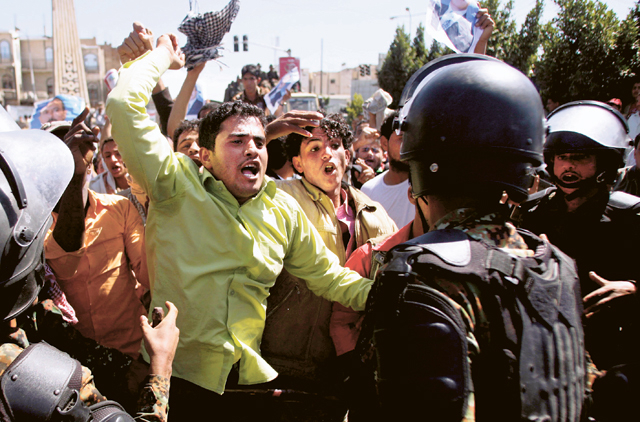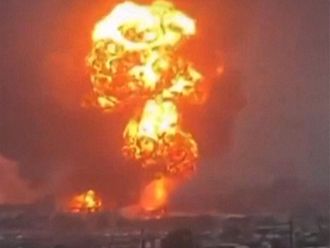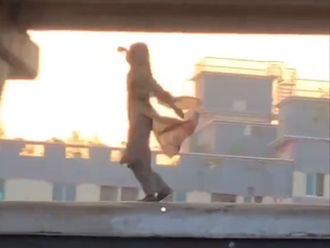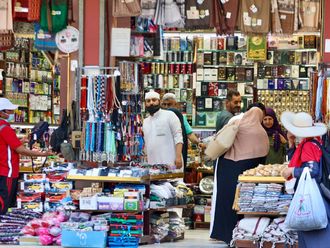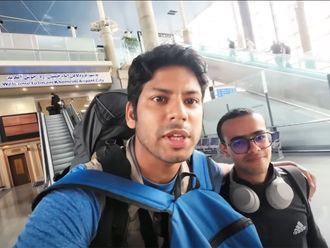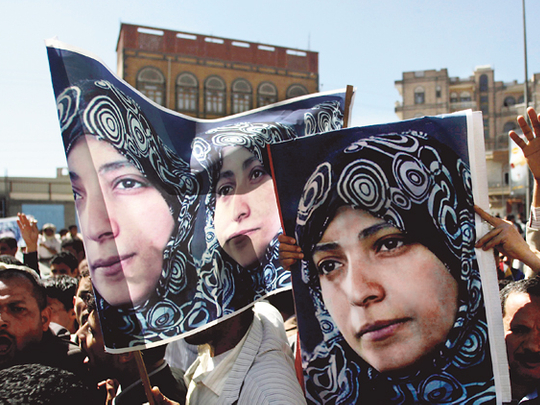
Aden: Yemeni police have arrested a female press freedom activist known to have been involved in pro-Tunisia revolt protests, rights activists, her family and a security official said yesterday.
Tawakel Karman, who heads the rights group Women Journalists Without Chains, was stopped by plain-clothes police in a main street as she was heading home with her husband, according to rights activists who declined to be identified.
The reason for her arrest was unclear, but she is being held in Sana'a's main prison, according to her family.
A security official said the arrest stemmed from a warrant issued by prosecutors, without specifying.
Karman, a member of the central committee of the Islamist Al Islah (Reform) party, has been involved in Sana'a demonstrations in support of a popular revolt in Tunisia that have been marked by calls for political change in Yemen.
On Saturday, thousands of Yemenis took to the streets, in a massive demonstration which appeared to be the first of its kind. The nation's 23 million citizens have many grievances: they are the poorest people in the Arab world, the government is widely seen as corrupt and is reviled for its alliance with the United States in fighting Al Qaida, there are few political freedoms and the country is rapidly running out of water.
Control
Still, calling for President Ali Abdullah Saleh to step down had been a red line that few dissenters dared to test. In a reflection of the tight grip Saleh's government and its forces have in the capital — outside the city, that control thins dramatically — Saturday's demonstration did not take place in the streets, but was confined to the grounds of the University of Sana'a.
Around 2,500 students, activists and opposition groups gathered there and shouted slogans against the president, comparing him to Tunisia's ousted President Zine Al Abidine Bin Ali, whose people were similarly enraged by economic woes and government corruption.
One of the organisers, Fouad Dahaba, said the demonstration was only a beginning and they will not stop until their demands are met. "We will march the streets of Sana'a, to the heart of Sana'a and to the presidential palace. The coming days will witness an escalation," said Dahaba, an Islamist lawmaker and head of the teachers' union.
Making good on that pledge will be difficult. Like other states in the Arab world, Yemen's government shows little tolerance for dissent and the security forces — bolstered by US military aid intended for fighting the country's virulent Al Qaida offshoot — are quick to crack down.
Police fired tear gas at the demonstrators, whose grievances include proposed constitutional changes that would allow the president to rule for a lifetime. Around 30 protesters were detained, a security official said. He spoke on condition of anonymity because he was not authorised to speak to the press.
Taxes slashed
Since the Tunisian turmoil, Saleh has ordered income taxes slashed in half and has instructed his government to control prices. He also ordered a heavy deployment of anti-riot police and soldiers to several key areas in the capital and its surroundings to prevent any riots.
Nearly half the population lives below the poverty line of $2 a day and doesn't have access to proper sanitation. Less than a tenth of the roads are paved.


